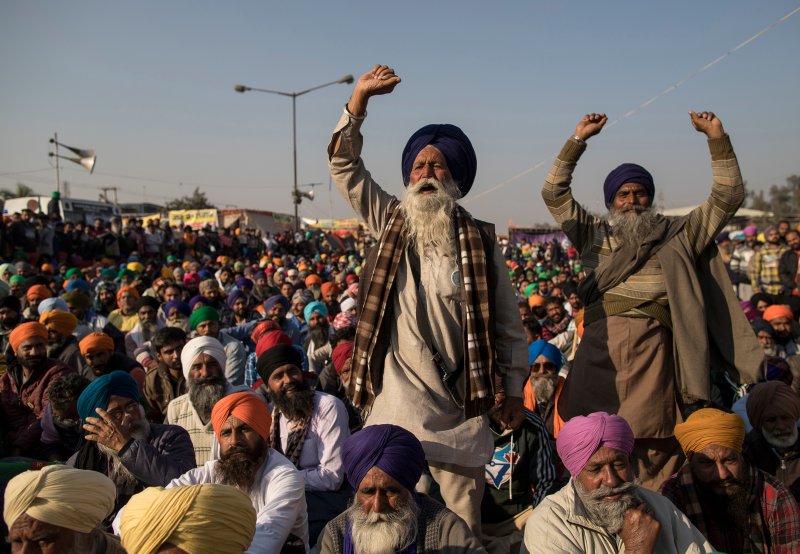What: Celebration of India's Democracy
Date:
Saturday, June 29, 2024 - 11:00 AM to 2:00 PM
Place:
Steps of Lincoln Memorial, Washington DC
RSVP: https://www.eventbrite.com/e/celebration-of-indias-democracy-tickets-919712895027?aff=oddtdtcreator
Democracy
survives in India.
The world was looking up to India for its sustained democratic
structure, and thank God to the people for regaining it. The key element in a
democracy is to debate and discuss every issue and not pass important
legislation in the dark hours of the night. India had lost the debate and
discussion part in its parliament in the last ten years. Thanks to the people
of India for waking up and giving the opposition enough seats to prevent
corruption, nepotism, authoritarianism, and abuse of government machinery to
silence the opposition.
We appreciate India’s journalist heroes who vigorously
fought false information, denigration, and hateful rhetoric toward significant
nation populations. They did not fear going to jail, nor were they bought out,
as much of the Indian Media speaks for the governing political party. Here are
a few names.
Dhruv Rathee, Siddharth Varadarajan, Karan Thapar, Arfa Khanum
Sherwani, Ravish Kumar, Ajith Anjum, Abhisar Sharma, Zubair Muslim Mirror,
Pragya Mishra, Rana Ayub, Aakar Patel, Sakshi Joshi, Sham Mira Singh,
Kumkum Binwal, Deepak Sharma, and many more.
Way back when PM Indira Gandhi had imposed the emergency rule in
India, Indian Express fought off and Mr. Goenka even went to jail to save
Indian democracy.
You are invited
What: Celebration
of India’s Democracy. We invite you to join us in singing patriotic songs,
seeing posters of inclusive India, and hoisting the Indian and American flags
by members of all communities, preferably children, at the Celebration of
India’s Democracy.
Who: It
is an inclusive event, and every Indian and non-Indian is invited from
Adivasi, Bahai, Buddhist, Christian, Dalit, Hindu, Jain, Jewish, Sikh, Muslim,
Tribals, Zoroastrian, and other communities, to celebrate India's democracy and
promote unity and inclusivity.
Speakers: They will speak about India's constitution,
the similarities between US and Indian Constitutions, Freedom to practice
their faiths, and live their lives in the pursuit of their happiness. How
a cohesive India is good for every Indian and American.
We need to develop a culture of respecting and accepting the
uniqueness of every Indian and once again become a beacon of democracy and
pluralism to the world.
A
few sampler videos at the Lincoln Center about India
1. https://www.youtube.com/watch?v=Xo2IIDxJc3M
2. https://www.youtube.com/watch?v=etVC3EHOwKo&t=28s
Indians Together
Welcome to the Celebration of India's democracy!
Come join us at the Lincoln
Memorial for a day filled with cultural perfomances,
singing 2-liner patriotic songs, and insightful discussions about inclusive
India's vibrant democracy and hear what an inclusive India means through 10
posters. This event is a great opportunity to learn more about the rich history
and values that shape India's pluralistic landscape. Whether you're a democracy
enthusiast or just curious to know more, this event is perfect for everyone. So
mark your calendars and get ready to celebrate India's democracy in a fun and
engaging way! Learn about the similarities of Indian and American
constitutions. "We hold these truths
to be self-evident,
that all men are created."
Indians Together is
the grass-root movement of Indians committed to building a cohesive India,
where they feel secure about their faith, language, economic status, physical
status, ethnicity, race, or other uniqueness. All Indians are welcome, we are
an inclusive informal group of people.
https://www.eventbrite.com/e/celebration-of-indias-democracy-tickets-919712895027?aff=oddtdtcreator

